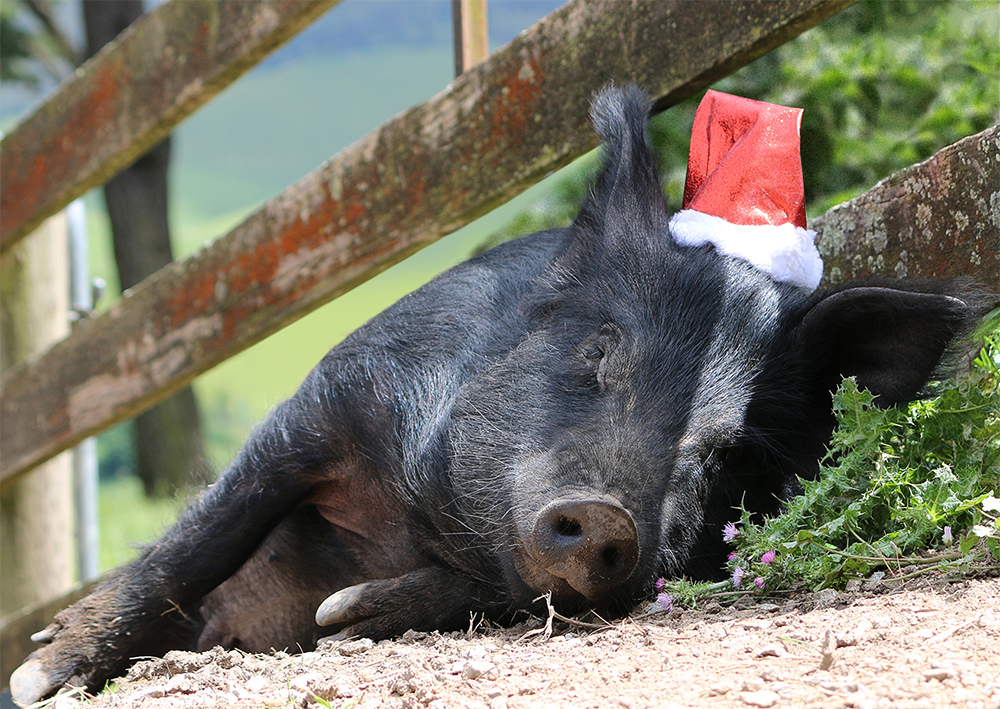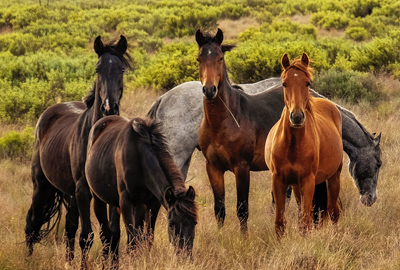Orangutan has Right to Freedom, Court Rules
Published 23 December 2014
An orangutan held in an Argentine zoo can be freed and transferred to a sanctuary after a court recognised the ape as a "non-human person" unlawfully deprived of its freedom, lawyers say.
Animal rights campaigners filed a habeas corpus petition – a document more typically used to challenge the legality of a person’s detention or imprisonment – in November on behalf of Sandra, a 29-year-old Sumatran orangutan at the Buenos Aires zoo, arguing she was “suffering an unwarranted confinement”.
In a landmark ruling that could pave the way for more lawsuits, the Association of Officials and Lawyers for Animal Rights (AFADA) argued the ape had sufficient cognitive functions and should not be treated as an object.
The lawyers said that while Sandra was not identical to humans biologically, she was in fact like humans emotionally, and would be happier living in a semi-wild habitat.
“She has lived in captivity for 20 years and the point of today’s measure is for her to overcome having been held in captivity and depression, for her to be in semi-free conditions in a sanctuary,” AFADA lawyer Andres Gil Dominguez told local media.
“If humanity’s development centres on our broadening reasoning, then Sandra is subject to law.
“It’s a very basic recognition.”
The court agreed Sandra, born into captivity in Germany before being transferred to Argentina two decades ago, deserved the basic rights of a “non-human person”.
“This opens the way not only for other great apes, but also for other sentient beings which are unfairly and arbitrarily deprived of their liberty in zoos, circuses, water parks and scientific laboratories,” AFADA lawyer Paul Buompadre was quoted as saying in the daily La Nacion newspaper.
The AFADA is in the process of securing Sandra’s release to transfer her to a sanctuary where she is expected to live a more comfortable and happy life, lawyers said.
The Buenos Aires zoo has 10 working days to seek an appeal, and if they do not she could be moved to a semi-wild sanctuary in Brazil.
A spokesman for the zoo declined to comment.
The zoo’s head of biology, Adrian Sestelo, told La Nacion newspaper that orangutans were by nature calm, solitary animals which come together only to mate and care for their young.
“When you don’t know the biology of a species, to unjustifiably claim it suffers abuse, is stressed or depressed is to make one of man’s most common mistakes, which is to humanise animal behaviour,” he said.
Orangutan is a word from the Malay and Indonesian languages that means “forest man”.
Sandra’s case is not the first time activists have sought to use the habeas corpus writ to secure the release of wild animals from captivity.
A US court this month tossed out a similar bid for the freedom of Tommy the chimpanzee, privately owned in New York state, ruling the chimp was not a “person” entitled to the rights and protections afforded by habeas corpus.
In 2011, the animal rights group People for the Ethical Treatment of Animals (PETA) filed a lawsuit against marine park operator SeaWorld, alleging five wild-captured orca whales were treated like slaves.
A San Diego court dismissed that case.
AFP/Reuters » Full Story
Comment
A strong precedent set for non-human animals, recognising them as persons through the legal system. Plus great news for Sandra. May her remaining days be as close to what they should have been without such abhorrent human interference.
Recent News
-

Bred to Suffer
Charges were dropped for activists, but an American beagle facility is still abusing dogs.
-

Pigs need your help now!
URGENT - the Victorian Government has set up a Parliamentary Inquiry into the welfare of pigs in Victoria. YOU now have a platform to speak up for pigs. To stand beside them and say NO to the brutal existence and excruciating deaths in gas chambers we force upon them.
-

Vegan Christmas Guide
Christmas, at its best, is a time to gather with loved ones and for advancing peace and goodwill.
-

Wild horses facing mass slaughter
Mares in foal and mares with foals at foot, to face a mass slaughter in August.
-

Farmed fish are depressed
On World Day for the End of Fishing, we're launching an animation about fish who are subjected to aquaculture.
-

Floods, climate change and animal agriculture
The recent Australian floods in New South Wales and Queensland have taken a devastating toll on local communities. Unprecedented rainfall, exacerbated by the effects of climate change, has affected not only humans but also thousands of animals used in farming and agriculture.
Comments
You don’t know how happy this makes me. I feel incredibly sorry for animals that can’t defend themselves, especially from humans. Thank you for posting this!
Leave a Comment